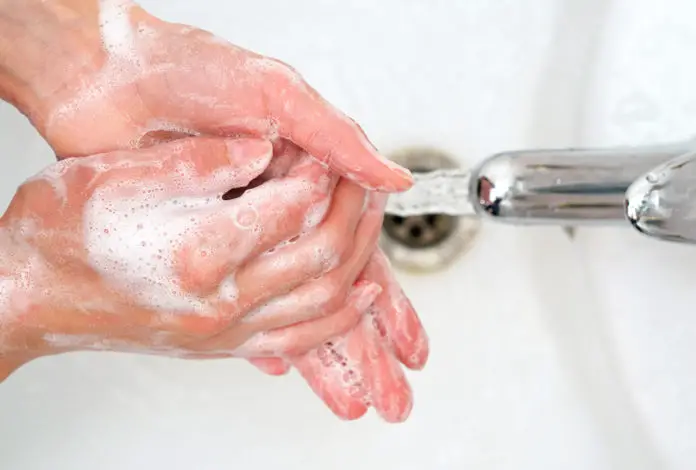According to the CDC, keeping our hands clean through regular washing with soap and running water is one of the most important steps to avoid getting sick and spreading germs to other people. This is even more important now that the world is battling the covid-19 pandemic.
To appreciate why washing your hands is important, you first need to understand how germs get onto the hands and make people sick.
Ways Germs Can Get Onto Our Hands
Germs can get onto the hands when people share the toilet or change a diaper. You can also get germs onto your hands through less obvious ways, such as handling raw meat. For the coronavirus, the germs can also spread to the hands if someone coughs or sneezes while covering their mouth or nose with their hands. You can also get covid-19 germs onto your hands if you touch a contaminated object.
Once these germs get onto our hands and are not washed off, they can be spread from one person to the next with ease. Common means by which germs can spread from the hands to affect ourselves, and other people include;
- When you touch your eyes, nose, or mouth with unwashed hands
- When preparing food and drinks with unwashed hands
- When the next person touches a surface that you’ve touched with unwashed hands
- When you touch other people’s hands or commonly shared objects with unwashed hands
Washing your hands with soap and flowing water removes germs, thus protecting you from illnesses and preventing the spread of infections to other people. Research by the CDC shows that merely washing your hands can reduce respiratory infections, such as covid-19, by up to 20%. It can also prevent about 30% of diarrhea-related infections.
How to Properly Wash Your Hands
The key to washing your hands is to clean all surfaces and areas of your hands, fingers, and wrist. Here’s a 7-step procedure you can follow;
1. Wet your hands with clean running water
This should be a straightforward process. The key is to use running water as standing water may harbor the bacteria and pass it to the next person. So, don’t put the water in a basin or other container. Instead, wash your hands from the tap. If you’re wondering which one between warm and cold water is more effective, the answer is – both work the same way.
2. Apply soap
Two things are important here – the type of soap and the extent of the application. You’ll find some people or organizations recommending antibacterial soap. Regular soap is just as effective. It washes dirt and germs off the surface of the hands just as efficiently as antibacterial soap. As for the extent of application, make sure to cover every millimeter of the hand, fingers, and wrist.
3. Lather and rub your hands briskly
Germs can be extremely stubborn. Since they’re extremely tiny, even a tiny wrinkle between the fingers can harbor thousands of them. The only way to remove every single germ is to run your hands together aggressively. Make sure to scrub every part of each hand. Also, make sure that the soap reaches every corner of the hands.
4. Continue scrubbing for 20 seconds
Here too, the reason is to catch as many germs as possible. As we’ve already mentioned, germs can be extremely stubborn. Waiting for 20 seconds provides enough time for the soap to form a lather that contains pin-like surfactant molecules with two ends. One end likes to interact with water while the other readily interacts with other similar biological materials, such as fats and oils, which form the outer membrane of coronaviruses.
5. Rinse your hands
Again, use running water. This way, all the dirt and germs from the hands drain away so that other people can’t come into contact with them. You can use cold or warm water. The two are equally effective.
6. Dry your hands and wrist
Ideally, you want to use a clean towel to wipe the water out. However, you can also let your hands air-dry naturally. The reason is that wet hands spread germs more quickly than dry hands. Therefore, drying your hands before interacting with others can help curb the spread of infections such as covid-19. You can also use hand driers.
7. Use a towel to turn off the faucet
Although public and private premises are all encouraged and regularly reminded to keep faucets and other public areas clean and disinfected to slow the spread of covid-19, you can never be too careful. Using the towel rather than your bare hands to turn off the faucet further minimizes risk.
When to Wash Your Hands
Ideally, you want to wash your hands as often as possible. However, always wash them again before and after preparing food or eating, using the toilet, blowing your nose or coughing/sneezing, or handing pets or domesticated animals. Remember to also wash your hands after caring for a sick person.

